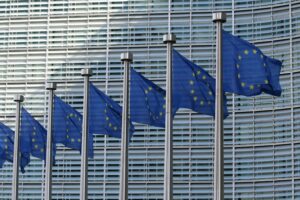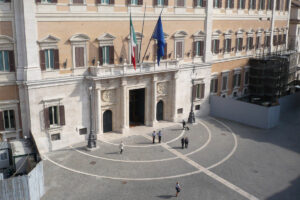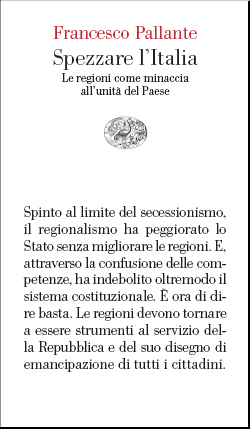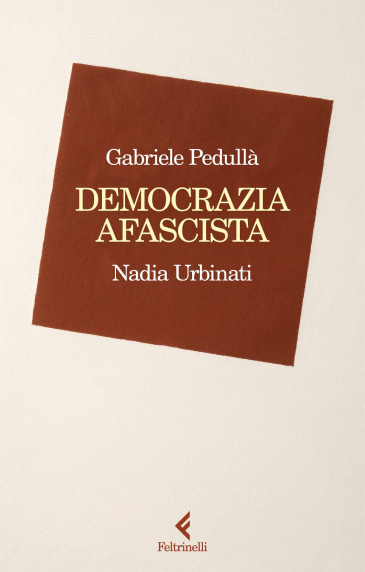Meeting of the Conference of PresidentsPresentation by European Commission President Romano PRODI and Enlargement Commissioner Günter VERHEUGEN of the Commission’s recommendation on Turkey’s application to join the EU
The Commission has recommended saying yes to the opening of accession negotiations with Turkey, but it is “a qualified yes”, Commission President Romano PRODI told MEPs today. Thus the Commission advocates ending negotiations as soon as any breakdowns occur in the “progress towards democracy, human rights, fundamental rights and the rule of law.” Also, long transition periods or permanent safeguard clauses may be necessary in the case of the free movement of workers. And Mr Prodi stressed “the outcome is not a foregone conclusion. (…) However, we cannot imagine a future for Europe in which Turkey is not firmly anchored”.President Prodi’s eagerly-awaited message was delivered early Wednesday afternoon to a meeting open to all Members of the European Parliament, very shortly after the Commission had adopted its recommendation. During the ensuing debate Parliament’s political group leaders and other MEPs had the opportunity to express their views. European Parliament President Josep BORRELL (PES, ES) announced that Parliament will hold another debate on the Commission’s recommendations at its Strasbourg plenary on 26 October. Parliament will then adopt a report before the European Council takes its decision in December.As regards “the essential documents on the organisation of democracy”, Mr Prodi said, “Turkey has reached the level required by European standards in such matters, or will do so once the new Criminal Code enters into force.” Thus the death penalty has been abolished and Leyla Zana’s trial is being reviewed.
However, much needs to be done to bring these changes into practice. “The report draws attention to the situation as regards torture, women’s rights, trade union rights, religious freedom and relations between civil and military authorities.”The Commission believes that “Turkey’s accession to the EU may make a positive contribution to the Union. However, the country’s size, geographical position and traditions as a regional power, its defence capacity, population and demographic growth, its current level of development, the disparities between its regions, its infrastructure and the size of its rural and farming population call for profound reflection and clear precautions in conducting accession negotiations, so as to prevent Turkey’s integration from weakening the structure we have been building for over 50 years.”Mr Prodi concluded by appealing to Turkey, its people and its government to show determination in pursuing further reforms and wisely conducting the accession process. He called on the European public to demonstrate equal perseverance, pointing out that a Europe with self-confidence and a Constitution, with strong institutions and well-established policies had nothing to fear from Turkey’s accession and that Turkey’s integration will also bring opportunities in terms of growth and prosperity.Outgoing enlargement Commissioner Günter VERHEUGEN said that today’s decisions by the Commission had been reached on the basis of a broad consensus. Over the past five years, the Commission had come to cooperate with Turkey in such a way that it has changed rapidly and has ceased to be a country where human rights are violated.
Mr Verheugen stressed that the decision whether or not to open accession negotiations with Turkey is the prerogative of the European Council, when it meets in December. The Commission’s reports are no more than recommendations. The Commission has given a positive response because Turkey’s legal framework corresponds to the requirements of a modern state governed by the rule of law, although it is true that in practice there are still shortcomings. However, Mr Verheugen stressed, never in any of the 13 previous accession processes has full, 100% implementation been a prerequisite for starting negotiations. If it had been, it would have been impossible to start negotiations with any of them. Even on the brink of accession there were still demands which needed to be met. On the permanent safeguard clauses regarding the free movement of workers, Mr Verheugen said he had spoken to the Turkish government. It had no objections, as it didn’t expect this still to be a problem in 12 or 15 years time. As with all negotiations, the outcome is never certain from the outset. This does not mean that the end goal is uncertain. The negotiations should be conducted with an intention to achieve accession. Under all circumstances the solid anchoring of Turkey in Europe should be ensured.
Bulgaria, Romania, CroatiaAccession negotiations with Bulgaria have been completed technically, and Mr Verheugen hoped the same would be true in the case of Romania before the end of this year, although he admitted this would be difficult.
After this, two years will follow in which a number of obligations still need to be fulfilled, something which will be monitored closely. Should one of these countries or both be unable to meet the requirements, a special safeguard clause will enable accession to be postponed by one year. Negotiations with Croatia can commence next year, Mr Verheugen said. Lessons learned from previous negotiations have resulted in a number of changes, which makes it possible to focus better on what needs to be done and to use clearer criteria for winding up parts of the negotiations.
Reactions from political groupsHans-Gert POETTERING (DE) stressed that a large majority of the EPP-ED group supported what he was about to say. He emphasised that the EU would change fundamentally upon the accession of Turkey, with its voluminous population, borders which stretch far into Asia and a different culture and standard of life. He accused Commissioner Verheugen of “cynicism” for repeating these past few weeks that no systematic torture occurs in Turkey. Mr Poettering acknowledged the reforms launched in Turkey, but said that much of what had been put to paper has not been put into practice yet. He accused Mr Verheugen of a lack of objectivity.At the next two EPP summits, said Mr Poettering, he would urge government leaders to ensure the outcome of accession negotiations was left open. It should be possible to deny EU membership, but offer a different form of cooperation, i.e. a privileged partnership.
Speaking for the Socialist Group, Martin SCHULZ (DE) agreed that this was a fundamental decision which would set the direction for the future of the EU. His group believed that the opportunity to continue the EU’s work in creating unity and peace was greater with Turkey than without, he said. The views of the violent people who said Islam and western values could not coexist must be rejected. Nevertheless, he said this enlargement process must be regarded as special. He said there were four key issues which must be addressed: there must be regular monitoring and reporting back to Parliament on the progress or lack of it in the negotiations; opening talks should not be seen as guaranteeing accession, reforms needed to be implemented as well as promised; the process needed to be suspended if Turkey’s moves towards EU values were jeopardised; transition periods on labour mobility, agriculture and structural support would be required. Overall, the PES supported the opening of negotiations, but there should be no automatic accession.Graham WATSON (UK), leader of the ALDE group, said that the majority, though not unanimous, view of his group was that negotiations should begin. He said the outcome and manner of the negotiations would say as much about the EU as it did about Turkey. The EU would be asked to approve not today’s Turkey, but one at least a decade away, after profound changes to society there. He strongly criticised those who argued that a mainly Muslim state could never be part of a Christian Europe.
“What does this say to the 20 million European Muslims?” he asked. “Where does that leave our fine words about the universality of our values?” Three points should be borne in mind in the negotiations, he believed: their opening was no guarantee of success; there would need to be close scrutiny of progress on human rights matters; the process should lead to greater harmony between the Christian, Muslim and Jewish faiths. Two thirds of Turkey’s citizens apparently believed that the EU would not admit them. Turkey deserved better than to be judged by anything other than objective criteria, he said.For the Greens/EFA group, Daniel COHN-BENDIT (DE) said the majority of his group welcomed the Commission’s recommendation. To Mr Poettering, he said it was time to have confidence in the Europe that had been built on a foundation of human rights, and to realise this would not be dramatically changed. There would be many positive developments in the EU and in Turkey before 2014, he said. “As the EU reconciled differences between France and Germany – the Rhine miracle – and between Germany and Poland – the Oder miracle – there could now be a Bosphorus miracle, reconciling Europe to Turkey”. Open-ended negotiations were not the answer: Turkey had applied for membership. Both sides should enter the talks with heads held high, he said. The outcome was not certain, but “I hope our children will see Turkey as a member of the EU,” he said.Francis WURTZ (FR), leader of the GUE/NGL group, gave a favourable reaction to the Commission.
He said the process would give Europe a chance to debate its fundamental aims, which it did not do enough. It was time, he said, to recognise that Europe was no longer mainly made up of white Christians. There should be no automatic accession of Turkey, though, and there were many issues still to be resolved: Turkish Cyprus and the Armenian genocide amongst others. Jens-Peter BONDE (DK) spoke for the Independence and Democracy group. “The Commission says Turkey is ready for the EU,” he said, “but is the EU ready for Turkey?” He believed the adoption of the draft constitution and the accession of Turkey were mutually incompatible. A major concern was that by adding a large new country to the constitution’s model which already, in his view, favoured large countries, the small Member States would be excluded from decision making. He said that a generous effort should be made to improve living standards in poor areas, notably South Eastern Turkey, which was comparable to part of Africa. Finally, he strongly criticised the human rights situation in Turkey and accused Prime Minister Erdogan of trivialising the question of torture, which was still widespread.Brian CROWLEY (IE) spoke for the UEN group. He said the progress seen in Turkey would have been unimaginable ten years ago. Turkey was living up to its side of the bargain – the EU should start negotiations, even if there were differing views in his group on what the outcome should be. However, he was critical of anyone who suggested that conservative or traditional viewpoints in Europe were necessarily intolerant and could be ignored.
He said the EU had shown that by respecting the “dignity of difference” people could come together without losing their distinct identities. Philip CLAEYS (BE), a non-aligned MEP, opposed opening negotiations with Turkey, saying “the unthinkable is becoming a reality,” citing the occupation of Cyprus, the non-recognition of the Armenian genocide and the non-respect of ethnic minorities in Turkey. He said that it would cost the Union, if Turkey were to accede, €28 billion per year from 2025. “How will this be financed? This is as much as the ten new Member States put together. We are being asked here to sign a blank cheque for Turkey.”Elmar BROK (EPP-ED, DE), Chair of the Foreign Affairs Committee, said that the Oostlander report, which Parliament had adopted, had recommended full respect for the criteria. He agreed with Mr Verheugen that this was not 100% possible at the time negotiations started but added that torture must not be trivialised by calling it “unsystematic”. There was also a problem with many of the economic chapters of the acquis which, he said, could not be solved before 2014. He added that “the opening of negotiations must not hamper the ratification process for the draft Constitution”.Joost LAGENDIJK (Greens/EFA, NL), Chair of the EP Delegation for Turkey, welcomed the Commission’s recommendation and said as far he was concerned “negotiations could start next year”. He paid tribute to Turkey’s reforms calling it “the silent revolution”. He criticised however, the Commission’s recommendation that the free movement of people should be “permanently suspended”, saying that this measure was going too far and was based on unfounded speculation.Camiel EURLINGS (EPP-ED, NL), Parliament’s rapporteur on Turkey, stated that there were many outstanding issues including the freedom of religion and equal opportunities.
H
e
s
a
i
d
,
f
o
r
e
x
a
m
p
l
e
,
t
h
a
t
i
t
w
a
s
s
t
i
l
l
v
e
r
y
d
i
f
f
i
c
u
l
t
t
o
s
e
t
u
p
a
C
h
r
i
s
t
i
a
n
c
h
u
r
c
h
i
n
T
u
r
k
e
y
a
n
d
t
h
e
6
0
0
c
a
s
e
s
o
f
t
o
r
t
u
r
e
”
w
e
r
e
6
0
0
t
o
o
m
a
n
y
”
.
<
S
T
R
O
N
G
>
R
e
s
p
o
n
s
e
s
b
y
t
h
e
C
o
m
m
i
s
s
i
o
n
<
/
S
T
R
O
N
G
>
R
e
a
c
t
i
n
g
t
o
t
h
e
d
e
b
a
t
e
,
M
r
P
r
o
d
i
a
n
d
M
r
V
e
r
h
e
u
g
e
n
s
t
r
o
n
g
l
y
d
e
f
e
n
d
e
d
t
h
e
m
s
e
l
v
e
s
a
g
a
i
n
s
t
s
u
g
g
e
s
t
i
o
n
s
t
h
a
t
t
h
e
y
w
e
r
e
l
e
n
i
e
n
t
on torture. Mr Prodi stated that the Commission was responding to the clear mandate from the Council to assess Turkey’s suitability for opening negotiations. The negotiations, he said, would be long and difficult especially in terms of regional and economic policy. Politically speaking also, the negotiations, he said “are fraught with difficulties”. On torture, the number of cases was still too high, but Mr Prodi recognised the Turkish Parliament’s “zero-tolerance” attitude towards torture. Mr Verheugen stated that he was “hurt” by Mr Poettering’s use of the term “cynicism” about his attitude towards torture in Turkey. He too cited the “zero-tolerance” attitude of the Turkish government and strongly disagreed with the term “systematic torture” although he did recognise that some incidents of torture had taken place. One human rights group, he said, had suggested that systematic torture was taking place in Turkey, but after careful examination by the Commission, this was based on an interpretation of Turkish criminal law, which, by the Council of Europe’s standards, did not amount to torture. If this interpretation were to be used in the current Member States then many would be committing torture.
As to the human rights situation, Mr Verheugen stated that he had worked with representatives of the Christian churches and they had told him that although the situation was not perfect, this should not be used as an excuse for not giving a positive signal to Turkey.




